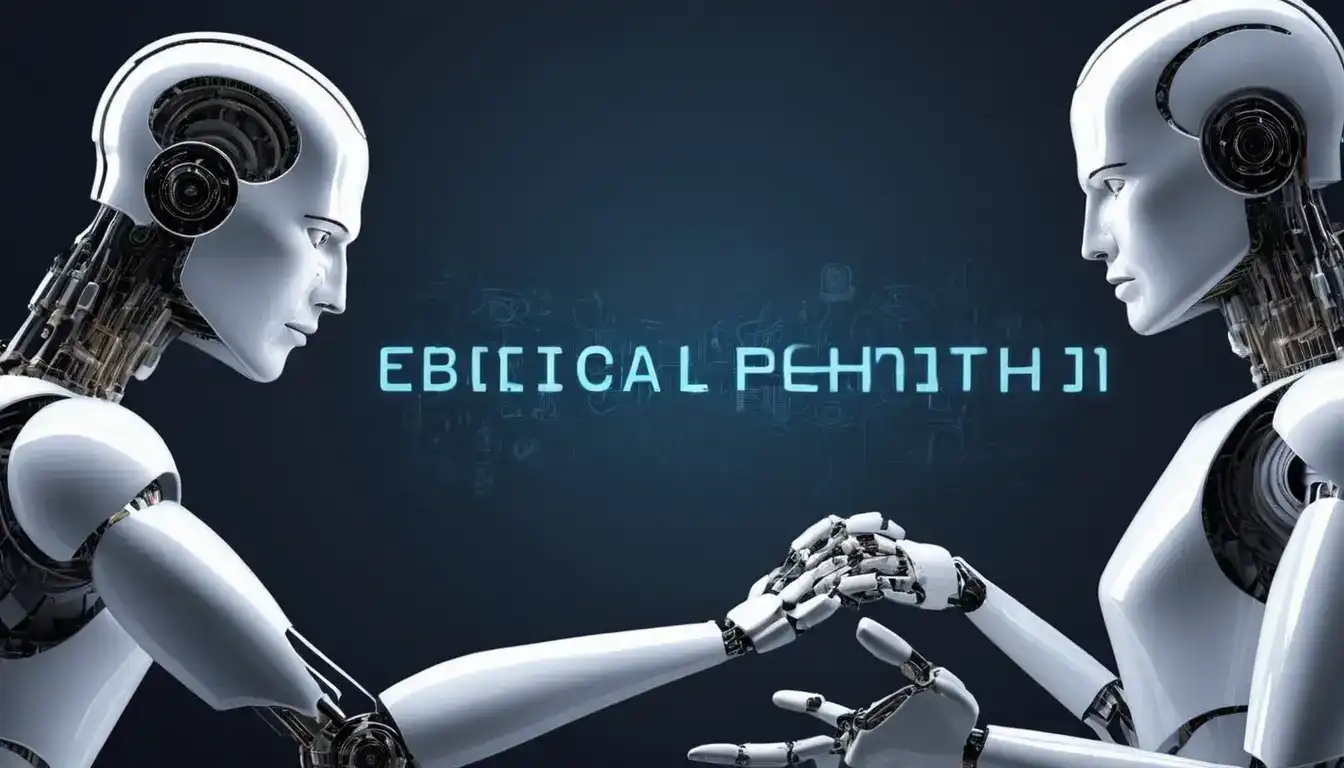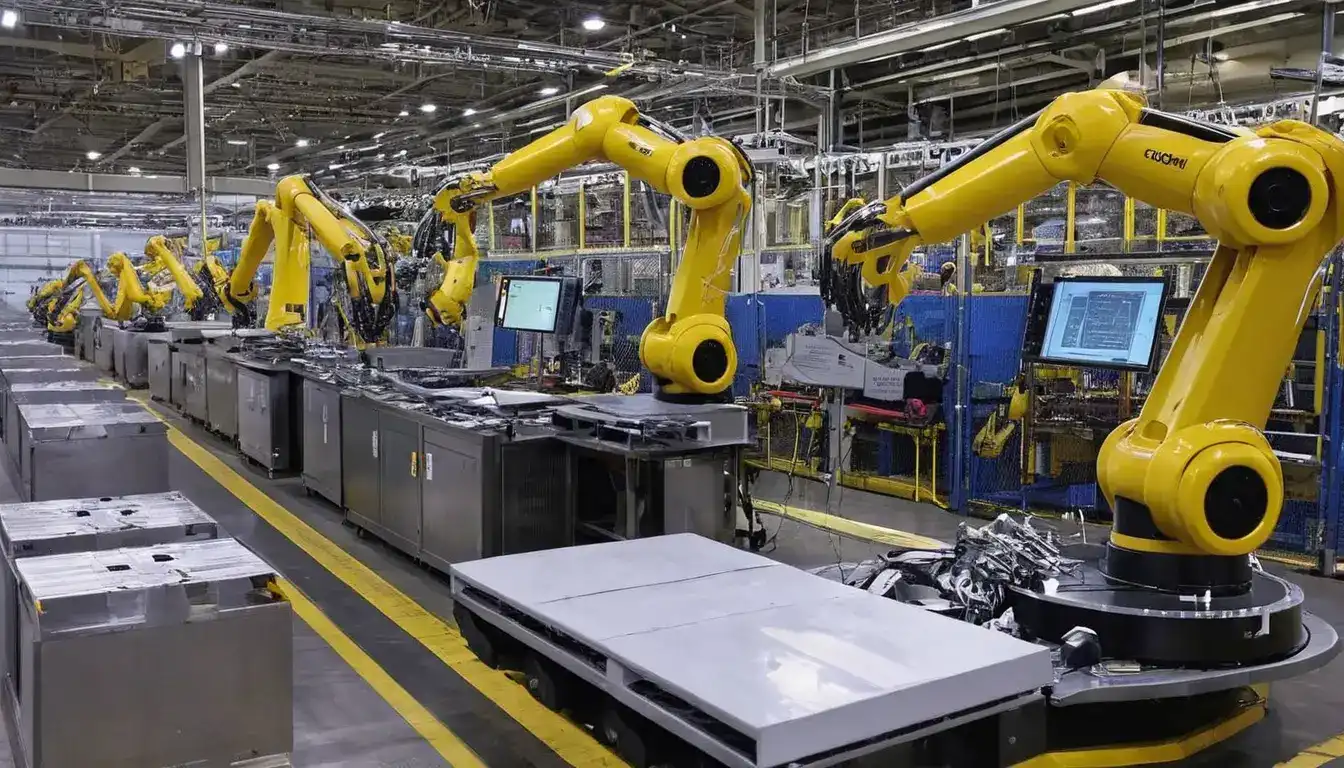Ethical AI for Educators: Train Future Teachers
Emily Willis

Photo: Ethical AI for Educators: Train Future Teachers
In the rapidly evolving landscape of education, Artificial Intelligence (AI) is no longer a futuristic concept but a present-day reality, reshaping how we teach, learn, and interact. From personalized learning platforms to intelligent tutoring systems, AI tools are becoming increasingly integrated into classrooms worldwide. But as we embrace these powerful technologies, a crucial question emerges: are we preparing our future educators to navigate the ethical complexities that come with AI?
This isn't just about understanding how AI works; it's about instilling a deep sense of responsibility, fairness, and foresight in those who will guide the next generation. Training future teachers in ethical AI isn't merely an academic exercise; it's a foundational necessity to ensure that AI serves humanity, not the other way around. Let's explore why ethical AI for educators is paramount and how we can effectively train future teachers to champion a responsible digital age.
Understanding AI in Education: A New Frontier
Artificial Intelligence refers to the development of computer systems capable of performing tasks that typically require human intelligence, such as learning, problem-solving, decision-making, and understanding language. In the context of education, AI applications are diverse and growing. Imagine AI-powered tools that adapt lessons to a student's individual pace and learning style, providing instant feedback and pinpointing areas where they might struggle. Or consider AI assistants that help teachers automate administrative tasks, freeing up more time for direct student engagement.
How AI is Transforming Learning AI in education promises to revolutionize various aspects of the learning experience:
- Personalized Learning Paths: AI can analyze a student's performance, strengths, and weaknesses to create tailored educational content and activities.
- Intelligent Tutoring Systems: These systems can provide one-on-one support, offering explanations and practice problems much like a human tutor.
- Automated Grading and Feedback: AI can efficiently grade assignments and provide immediate, constructive feedback, reducing teacher workload.
- Data-Driven Insights: AI can process vast amounts of educational data to identify trends, predict student outcomes, and inform teaching strategies.
- Accessibility Tools: AI can power tools that translate languages, provide captions, or convert text to speech, making education more accessible for students with diverse needs.
The promise of AI in education is immense, offering unprecedented opportunities to enhance learning outcomes and streamline educational processes. However, with great power comes great responsibility. The very systems designed to help can inadvertently introduce challenges if not developed and implemented with a strong ethical compass.
Why Ethical AI Matters for Future Educators
The integration of AI into education isn't just a technological shift; it's a profound ethical one. Future educators will be at the forefront of this transformation, acting as crucial intermediaries between students and AI technologies. Their understanding of ethical AI principles will directly impact the well-being, privacy, and equitable opportunities of their students.
The Moral Compass of AI Just like any powerful tool, AI can be used for good or ill. Without proper ethical guidance, AI systems in education could inadvertently perpetuate biases, compromise student privacy, or even limit human agency. For instance, an AI algorithm designed to recommend learning paths might inadvertently favor certain demographics if the data it was trained on was biased. Or, a system that tracks student engagement might collect excessive personal data without adequate consent or security measures.
Impact on Students: Privacy, Bias, and Equity The stakes are incredibly high when it comes to children and young adults.
- Data Privacy: Educational AI systems often collect sensitive student data, including academic performance, learning behaviors, and even emotional responses. Protecting this data from misuse, breaches, or unauthorized access is paramount.
- Algorithmic Bias: If AI models are trained on unrepresentative or biased datasets, they can perpetuate and even amplify existing societal biases related to race, gender, socioeconomic status, or disability. This could lead to unfair evaluations, limited opportunities, or discriminatory outcomes for students.
- Equity and Access: The digital divide remains a significant concern. Not all students have equal access to technology or high-speed internet, which could exacerbate inequalities if AI-powered educational tools are only available to a privileged few.
The Educator's Role in Shaping Responsible AI Use Future teachers aren't just users of AI; they are crucial ethical gatekeepers. They need to be equipped to:
- Critically Evaluate AI Tools: Understand how AI systems work, identify potential biases, and assess their suitability for diverse student populations.
- Advocate for Student Rights: Champion data privacy, ensure fair treatment, and protect students from the potential harms of AI.
- Teach Digital Citizenship: Educate students about the ethical implications of AI, fostering a generation of responsible digital citizens.
- Model Ethical Behavior: Demonstrate responsible AI use in their own teaching practices.
Without a strong foundation in ethical AI, educators might unknowingly implement systems that disadvantage certain students or compromise their long-term well-being. This is why training teachers in this crucial area is not optional; it's essential for building a fair and equitable educational future.
Key Ethical Considerations for AI in the Classroom
To effectively train future teachers in ethical AI, we must first delineate the core ethical considerations they will encounter. These are the pillars upon which responsible AI integration in education must stand.
Data Privacy and Security
One of the most pressing concerns in AI in education is the vast amount of student data collected. AI systems thrive on data, but this data often includes personally identifiable information (PII), academic records, and behavioral patterns.
- Consent: Who owns the data? How is informed consent obtained, especially from minors?
- **
Latest ✨
View AllThe Pacific Ocean is home to remote and enchanting islands that offer untouched natural beauty, rich cultures, and unique experiences for adventurous travelers. Tips for exploring these hidden gems include researching your destination, packing light, respecting local culture, exploring responsibly, and staying safe.
Emily Willis
our minds are often overwhelmed with information and stimuli, leading to stress and anxiety. Mindfulness and meditation offer tools to cultivate inner peace and well-being. Mindfulness involves being present in the moment without judgment, while meditation involves focusing attention on an object or thought.
Emily Willis
The music industry has undergone significant changes due to technological advancements, social media, and a growing global audience. The shift from analog to digital formats, the rise of streaming services, and the impact of social media on artist-fan relationships are explored.
Emily Willis
Beyond the gym: A modern man's guide to radiant skin. Learn essential skincare & lifestyle tips for health, confidence, and well-being.
Emily Willis
Business
View All
July 4, 2025
Colorado Business Search GuideEfficiently search Colorado business records. This guide helps you navigate the SOS database for legitimacy, due diligence, and competitive analysis.
Emily Willis

June 8, 2025
Data Analytics: Unlock Business InsightsUnlock powerful business insights with data analytics. Transform raw data into actionable intelligence for smarter decisions, efficiency, & growth.
Emily Willis

June 8, 2025
Business Networking: Connect & GrowUnlock professional success! Learn actionable strategies for effective business networking to expand opportunities, build credibility, and drive career growth.
Emily Willis
Economy
View AllFiscal policy is a crucial tool used by governments to influence economic activity and achieve various objectives. It involves decisions on government spending, taxation, and borrowing. During economic downturns, fiscal policy plays a key role in supporting recovery, stimulating demand, and promoting growth.
Read MoreBeyond a single location, "Lot G's Economy Gateway" refers to vital infrastructures—ports, airports, logistics hubs—driving global economic activity.
Read MoreUnpack the 17 Sustainable Development Goals (SDGs): a global blueprint addressing poverty, climate change, and inequality for a sustainable future.
Read MoreEntertainment
View All
August 5, 2024
Classic Films: Timeless Masterpieces in the Age of StreamingClassic films may seem outdated in today's world of instant gratification and endless streaming options, but they offer enduring stories, masterful storytelling, historical insights, technical innovation, and artistic value that surpass modern offerings. While classic films face challenges such as accessibility and pacing, there are ways to overcome these obstacles, such as using streaming services, visiting local libraries, attending film festivals, and utilizing online resources.
Emily Willis

July 4, 2025
EVO Waxahachie VibesDiscover EVO Waxahachie! Movies, bowling, arcade & dining all in one spot. Experience the ultimate entertainment vibe for all ages in Ellis County.
Emily Willis

July 7, 2025
MB2 Santa Clarita ActionDiscover MB2 Santa Clarita: Your ultimate 7-acre hub for action-packed fun! Go-karts, laser tag, arcade, and more for all ages. Plan your adventure!
Emily Willis
Health
View AllNutrition is crucial for maintaining overall body health, impacting energy levels, disease prevention, and overall well-being. A healthy diet includes fruits, vegetables, whole grains, proteins, healthy fats, and hydration. Proper nutrition positively affects energy levels, immune function, heart health, weight management, and mental health. Practical tips for improving nutrition include planning balanced meals, reading food labels, cooking at home, limiting processed foods, and staying hydrated. By prioritizing nutrition and making informed choices, individuals can enhance their health and well-being.
Emily Willis
Discover the comprehensive and critical services offered by ECMC Erie's ER Hub. Essential care when you need it most.
Emily Willis
Uncover Dignity Health's "Passions": the deep commitment to humanity, dignity, and patient-centered care that defines their exceptional healthcare.
Emily Willis
Trending 🔥
View All
1
2
3
4
5
6
7
8
9
10
Lifestyle



Sports
View AllAugust 5, 2024
Celebrating Sports Legends: Honoring Iconic Figures and Their Enduring Impact
Read MoreTechnology
View All
August 5, 2024
Ethical Challenges in AI Development and Use
Artificial Intelligence (AI) has evolved rapidly from science fiction to reality, offering immense potential but also presenting significant ethical challenges.

August 4, 2024
AI-Powered Robots Take Over Manufacturing Jobs: Is Our Workforce Prepared?
AI-powered robots are transforming the manufacturing industry, leading to increased efficiency and improved product quality. While concerns about job displacement exist, AI is more likely to transform jobs rather than eliminate them.

August 5, 2024
How to Choose the Right Cyber Security Solution for Your Business
In today's digital age, businesses face numerous cybersecurity threats and need to protect sensitive data. To choose the right cybersecurity solution, businesses should understand their specific needs, assess potential threats, evaluate different solutions, consider ease of use and integration, evaluate the provider's reputation and support, conduct a cost-benefit analysis, and implement and monitor the solution effectively.

August 4, 2024
Bridging the Digital Divide: Ensuring Everyone Has Access to Technology
we can bridge this gap and create a more inclusive digital landscape.


















